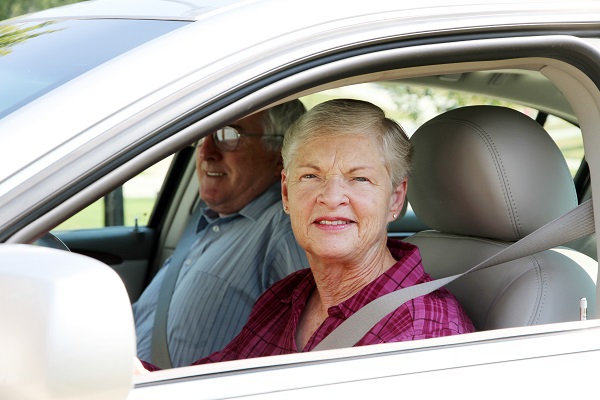After years of discussing strategies for getting older drivers to stop driving, opinions are changing. According to Jane Brody of the New York Times, “When a crash occurs involving an older driver, it tends to garner media attention, whereas the same accident with a younger driver would not.” This isn’t fair to older drivers. “The general population of older adults … are among the safest drivers on the road,” Jacob Nelson, the director of traffic safety advocacy and research at AAA, told Brody.
Forcing an older driver to give up the car keys can bring on an unpleasant family dispute. The loss of driving often leaves the senior longing for lost independence and feeling isolated and depressed. The new approach, as described by Elin Schold Davis, coordinator of the Older Driver Initiative of the American Occupational Therapy Association, is to focus on improved functions, and ““to support people to enable them to drive as long as possible” without endangering themselves or others. She advised consulting with a driving rehabilitation specialist before choosing the right car for the older adult’s health and physical condition.
The choice of vehicle can depend on its offering helpful features, such as:
- Keyless entry
- A push button to start and stop the engine
- Power seats that can change to the best positions for driving and for getting in and out of the car, useful for arthritic hands and limbs
- Power windows and mirrors
- A thicker steering wheel that is easier to grip
- An automatic tailgate closer
- A high-contrast instrument panel with large number and letter displays
- An auto-dimming rearview mirror
- Glare-reducing side mirrors
The AAA has a useful computerized website at seniordriving.aaa.com that helps older drivers identify the vehicles that may best suit their particular issues, including
—Cognitive decline or reduced mental capabilities
—Diminished vision
—Limited upper body range of motion (back / neck / shoulders / arms)
—Arthritic hands / diminished motor skills
—Short-statured / overweight
—Decreased leg strength
Choosing the right car should be individualized according to each driver’s needs, said Schold Davis. “Not all safety features are alike car-to-car.” The ultimate goal: “Decrease the likelihood of a crash and cushion against serious injury should a crash occur,” she said.
Richard Manger, principal of Manger Law Firm, has extensive experience in litigation and settlements, with a focus on personal injury and workers’ compensation law. We are proud of the strong relationships of loyalty and trust we develop with our clients. We go above and beyond to achieve the best possible outcome in your case. You can contact Richard Manger via email at ram@mangerlaw.com, or by calling (336) 882-2000.






